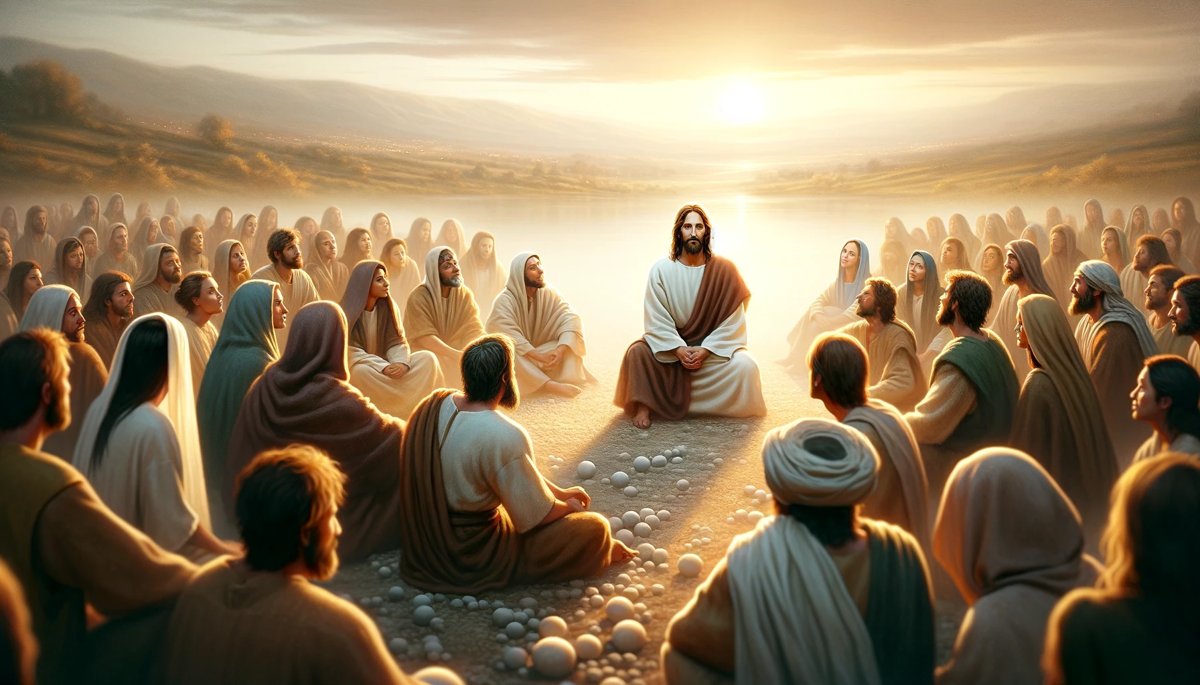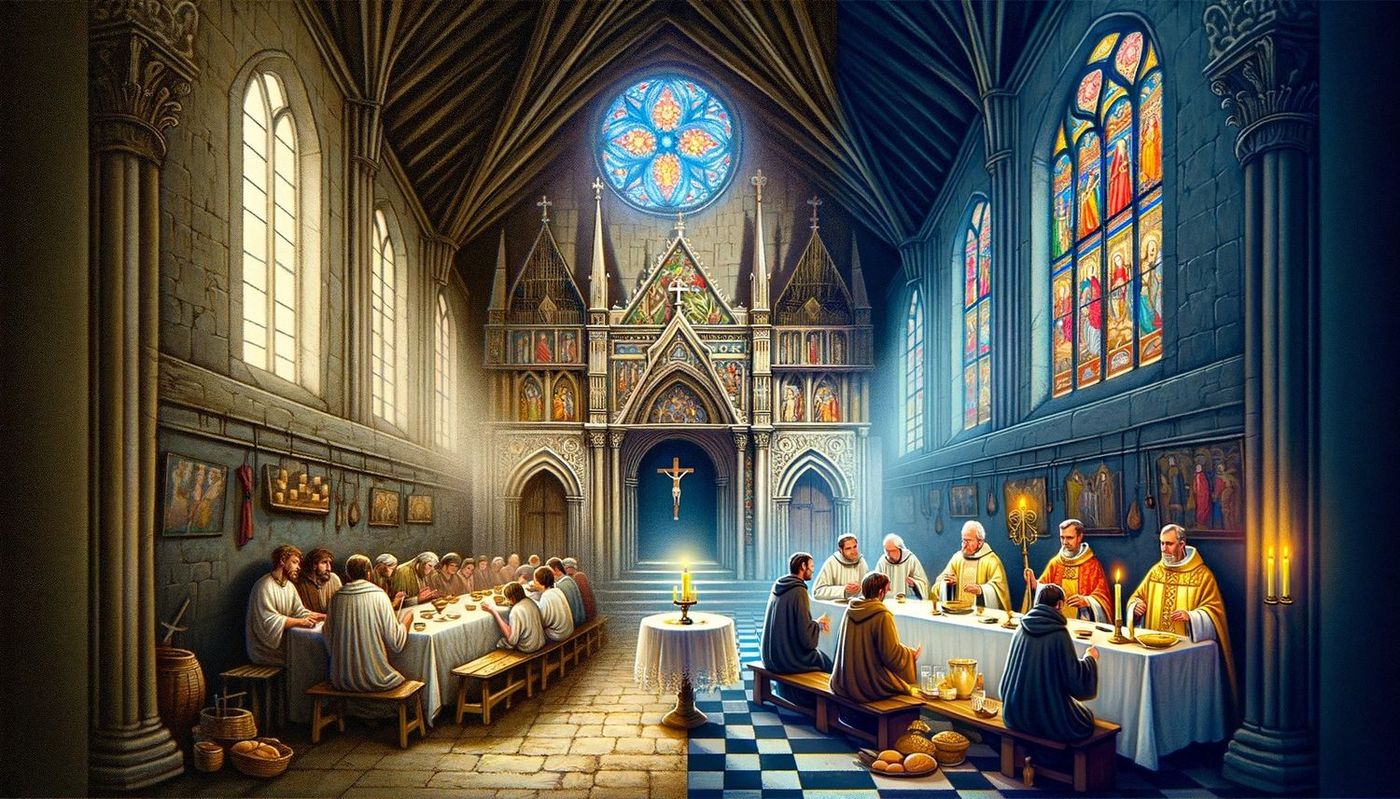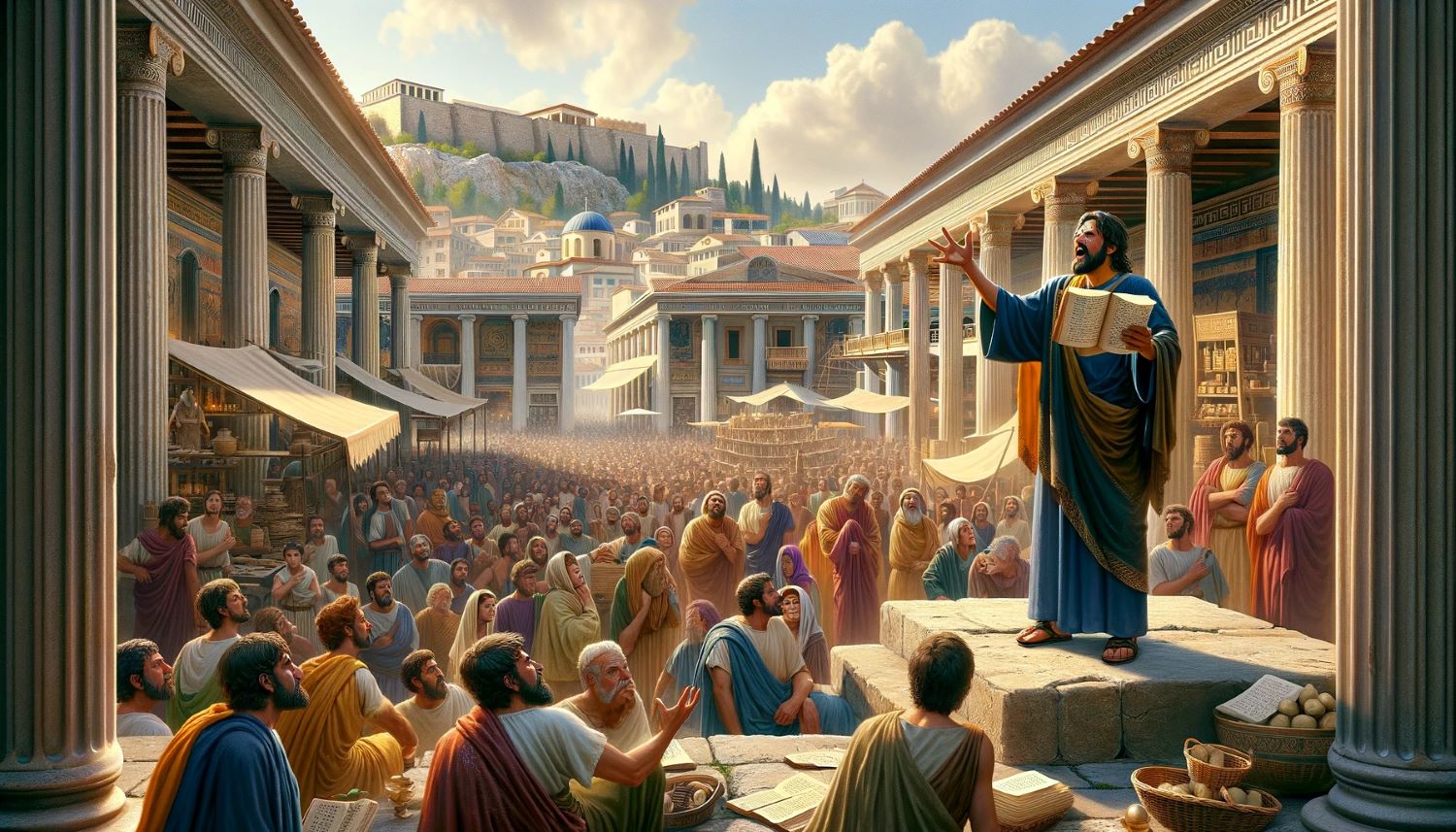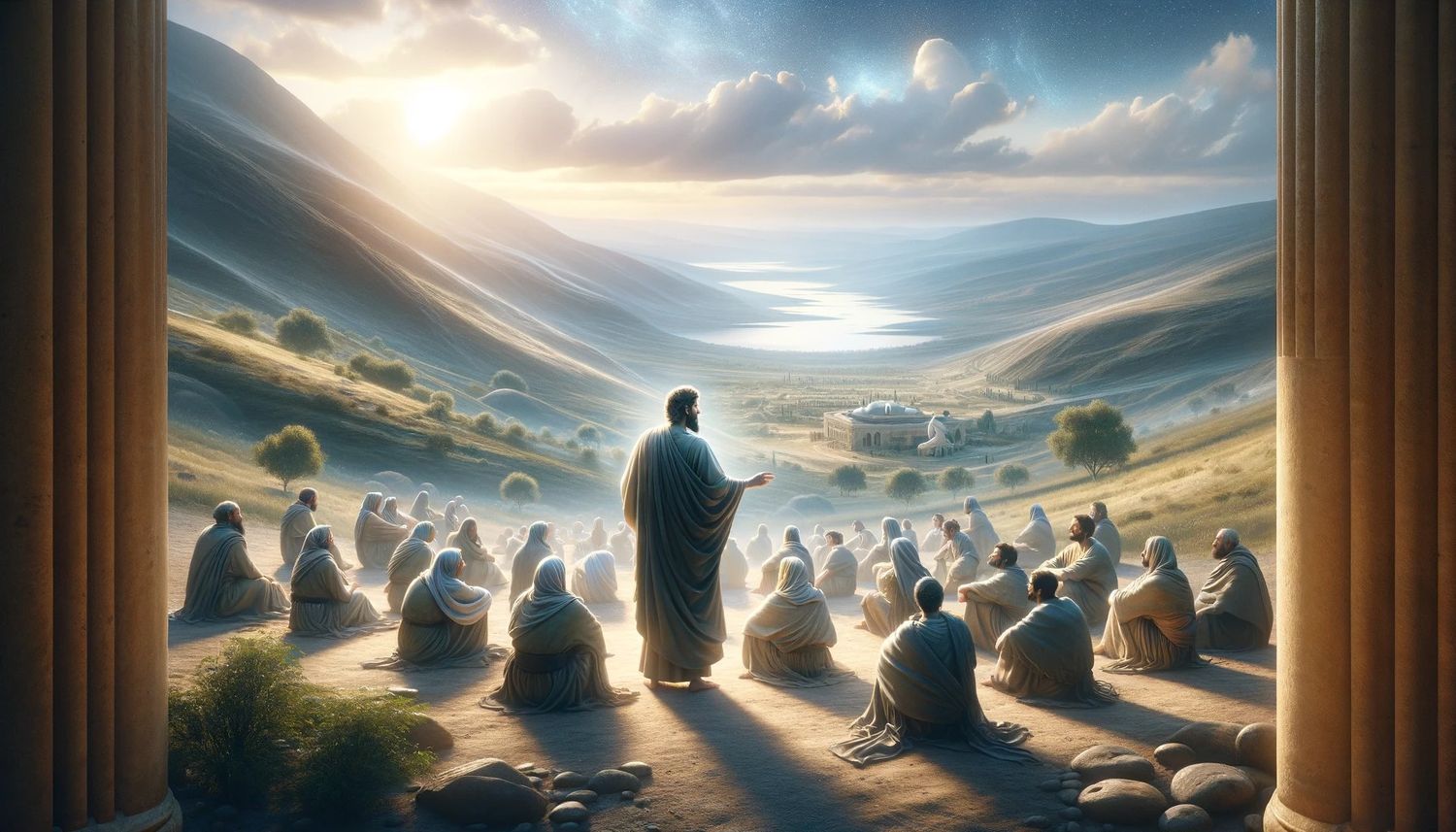Home>Theology and Spirituality>Which Branch Of The Baptist Is The Most Conservative


Theology and Spirituality
Which Branch Of The Baptist Is The Most Conservative
Published: February 20, 2024
Peter Smith, Editorial Director at Christian.net, combines deep insights into faith, politics, and culture to lead content creation that resonates widely. Awarded for his contributions to religious discourse, he previously headed a major organization for religious communicators, enhancing dialogue on faith's societal impacts.
Discover the most conservative branch of the Baptist denomination and its theological and spiritual beliefs. Explore the differences and similarities within Baptist theology and spirituality.
(Many of the links in this article redirect to a specific reviewed product. Your purchase of these products through affiliate links helps to generate commission for Christian.net, at no extra cost. Learn more)
Table of Contents
Introduction
The Baptist faith is a diverse and vibrant Christian tradition with various branches, each characterized by unique theological perspectives and practices. Among these branches, there is a spectrum of conservatism, ranging from moderate to staunchly traditionalist. Understanding the nuances of conservative beliefs within the Baptist community is essential for those seeking a church that aligns with their theological convictions.
In this article, we will delve into the world of conservative Baptist branches, exploring their distinct characteristics, beliefs, and practices. By shedding light on the factors that contribute to their conservatism, we aim to provide a comprehensive overview that will aid individuals in navigating the rich tapestry of Baptist denominations.
As we embark on this exploration, it's important to recognize that the term "conservative" encompasses a broad array of theological, social, and cultural stances within the Baptist tradition. From doctrinal adherence to traditional values, conservative Baptists uphold a steadfast commitment to their beliefs, often shaping the ethos of their respective denominations. Through this lens, we will examine the various expressions of conservatism within the Baptist community, offering insight into the distinguishing features of each branch.
Join us on this enlightening journey as we uncover the intricacies of conservative Baptist branches, gaining a deeper understanding of their foundational principles and the factors that contribute to their unwavering commitment to tradition and orthodoxy.
Overview of Baptist branches
The Baptist tradition encompasses a rich tapestry of branches, each with its own distinct theological emphases and cultural expressions. While all Baptist denominations share a common historical lineage tracing back to the 17th century, they have evolved into diverse entities with unique doctrinal positions and ecclesiastical practices. Understanding the landscape of Baptist branches is crucial for grasping the spectrum of conservatism within the tradition.
One of the most prominent branches is the Southern Baptist Convention (SBC), which stands as the largest Baptist denomination in the United States. Known for its conservative theological stance, the SBC upholds traditional beliefs such as biblical inerrancy and complementarian views on gender roles. This denomination also holds a strong emphasis on evangelism and missions, reflecting its commitment to spreading the Christian faith both domestically and internationally.
In contrast, the American Baptist Churches USA (ABCUSA) represents a more moderate and diverse Baptist expression. Embracing a range of theological perspectives, this denomination places a strong emphasis on social justice, ecumenism, and the autonomy of local churches. The ABCUSA's inclusive approach to theological diversity sets it apart from more conservative Baptist branches, reflecting a commitment to openness and dialogue within the denomination.
Another significant Baptist branch is the National Baptist Convention, USA, Inc. (NBCUSA), which holds a prominent position within the African American Baptist community. This denomination emphasizes the importance of social activism and community engagement, addressing issues of racial justice and equality. While sharing core Baptist beliefs, the NBCUSA's distinct cultural and historical context has shaped its unique expression of faith, contributing to a rich tapestry of Baptist diversity.
Furthermore, the Conservative Baptist Association of America (CBA) represents a group of churches that align with conservative theological positions while maintaining congregational autonomy. This denomination emphasizes biblical authority and evangelical outreach, reflecting a commitment to traditional Baptist principles within a contemporary context.
These are just a few examples of the diverse Baptist branches that collectively form a vibrant and multifaceted tradition. Each denomination's distinct theological emphases, cultural contexts, and historical trajectories contribute to the rich mosaic of Baptist expressions, encompassing a spectrum of conservatism that reflects the tradition's enduring vitality and adaptability.
Beliefs and practices of conservative Baptists
Conservative Baptists adhere to a set of foundational beliefs and practices that underscore their commitment to traditional Christian orthodoxy. These convictions shape their theological framework, ecclesiastical governance, and communal life, reflecting a steadfast dedication to upholding the core tenets of the faith.
Doctrinal Adherence
At the heart of conservative Baptist identity is a firm commitment to doctrinal orthodoxy, particularly the belief in the absolute authority and infallibility of the Bible. This foundational principle, known as biblical inerrancy, serves as a cornerstone of conservative Baptist theology, guiding their interpretation of Scripture and shaping their doctrinal positions on various theological issues. Additionally, conservative Baptists uphold traditional Christian doctrines such as the Trinity, the deity of Christ, salvation by grace through faith, and the bodily resurrection of Jesus Christ. These doctrinal convictions form the theological bedrock of conservative Baptist identity, informing their worship, teaching, and evangelistic endeavors.
Ecclesiastical Practices
In terms of ecclesiastical governance, conservative Baptist churches typically adhere to congregational polity, wherein each local congregation maintains autonomy in decision-making and governance. This emphasis on local church autonomy aligns with the broader Baptist principle of soul freedom, affirming the individual's liberty to interpret Scripture and participate in the life of the church according to conscience. Moreover, conservative Baptist churches prioritize the ordinances of believer's baptism by immersion and the Lord's Supper as integral aspects of their communal worship and spiritual identity. These practices serve as visible expressions of their faith and communal solidarity, underscoring the significance of sacramental symbolism within the conservative Baptist tradition.
Moral and Ethical Values
Conservative Baptists uphold traditional moral and ethical values rooted in their interpretation of Scripture, often emphasizing the sanctity of life, the importance of traditional family structures, and adherence to biblical standards of morality. This commitment to traditional values extends to their engagement with contemporary social and cultural issues, shaping their advocacy on matters such as marriage, human sexuality, and the sanctity of human life. As staunch proponents of traditional moral principles, conservative Baptists actively participate in public discourse and advocacy, seeking to uphold their convictions in the public square while remaining faithful to their theological heritage.
Missional Engagement
In line with their evangelical heritage, conservative Baptists prioritize missional engagement and evangelistic outreach, viewing the proclamation of the gospel as a central aspect of their communal identity. This commitment to mission and evangelism underscores their desire to share the Christian faith with others, both locally and globally, reflecting a deep-seated conviction in the transformative power of the gospel message. Through missions, evangelism, and community outreach initiatives, conservative Baptists seek to embody the Great Commission, fulfilling their calling to make disciples of all nations and bear witness to the redemptive work of Christ.
In summary, the beliefs and practices of conservative Baptists encompass a robust commitment to doctrinal orthodoxy, congregational autonomy, traditional moral values, and missional fervor. These foundational principles not only shape their communal identity but also underscore their enduring dedication to preserving the rich theological heritage of the Baptist tradition.
Comparison of conservative branches
When comparing conservative branches within the Baptist tradition, it becomes evident that while they share a commitment to traditional values and doctrinal orthodoxy, each denomination exhibits distinct emphases and theological nuances that contribute to their unique identities. The Southern Baptist Convention (SBC), the Conservative Baptist Association of America (CBA), and other conservative Baptist branches manifest variations in their doctrinal interpretations, ecclesiastical practices, and cultural engagements, reflecting the diverse expressions of conservatism within the tradition.
The SBC, as the largest Baptist denomination in the United States, upholds a staunchly conservative theological stance, emphasizing biblical inerrancy and a complementarian view of gender roles. This denomination places a strong emphasis on evangelism and missions, reflecting a commitment to spreading the Christian faith both domestically and internationally. In contrast, the CBA aligns with conservative theological positions while maintaining congregational autonomy. Emphasizing biblical authority and evangelical outreach, the CBA reflects a commitment to traditional Baptist principles within a contemporary context, showcasing a balance between doctrinal conservatism and congregational independence.
While both the SBC and the CBA share a commitment to conservative theological principles, they diverge in their ecclesiastical practices and cultural engagements. The SBC's hierarchical structure and centralized decision-making processes stand in contrast to the CBA's emphasis on congregational autonomy, highlighting differing approaches to church governance within conservative Baptist circles. Furthermore, the SBC's cultural influence and historical trajectory have shaped its engagement with social and political issues, often positioning the denomination as a prominent voice in public discourse on matters of morality and public policy.
In addition to the SBC and the CBA, other conservative Baptist branches such as the General Association of Regular Baptist Churches (GARBC) and the Fundamental Baptist Fellowship International (FBFI) contribute to the rich tapestry of conservative expressions within the tradition. These denominations exhibit variations in their doctrinal emphases, ecclesiastical structures, and cultural contexts, further illustrating the diverse manifestations of conservatism within the Baptist community.
In essence, the comparison of conservative branches within the Baptist tradition reveals a mosaic of theological perspectives, ecclesiastical practices, and cultural engagements. While united in their commitment to conservative principles, each denomination's distinct identity and historical trajectory contribute to a rich landscape of conservative expressions, reflecting the enduring vitality and adaptability of the Baptist tradition.
Factors influencing conservatism in Baptist branches
The conservatism observed within various Baptist branches is influenced by a confluence of historical, theological, cultural, and social factors that have shaped the identity and ethos of these denominations. Understanding the multifaceted influences that contribute to conservatism is essential for comprehending the nuanced expressions of traditional values and beliefs within the Baptist community.
Read more: Which Book Did John The Baptist Write
Historical Heritage
The historical trajectory of Baptist branches plays a pivotal role in shaping their conservative outlook. Many conservative denominations trace their roots to the 19th and early 20th centuries, a period marked by theological controversies and doctrinal schisms within the broader Baptist tradition. These historical fissures led to the formation of conservative branches that sought to uphold traditional interpretations of Scripture and doctrinal orthodoxy, laying the foundation for their enduring commitment to conservative theological principles.
Theological Convictions
The theological landscape within Baptist branches is a significant influencer of conservatism. Conservative denominations prioritize doctrinal orthodoxy, emphasizing beliefs such as biblical inerrancy, the exclusivity of Christ for salvation, and traditional understandings of morality and ethics derived from Scripture. These theological convictions serve as a catalyst for conservatism, shaping the denominations' approach to scriptural interpretation, ecclesiastical practices, and engagement with contemporary issues.
Cultural Context
The cultural milieu in which Baptist branches are situated contributes to their conservatism. Conservative denominations often reflect the values and norms of their cultural context, particularly in areas such as family structures, social ethics, and community engagement. This cultural resonance reinforces their commitment to traditional values and societal norms, influencing their stance on issues such as marriage, human sexuality, and the sanctity of life.
Ecclesiastical Identity
The ecclesiastical identity of conservative Baptist branches, characterized by congregational autonomy and a commitment to local church governance, fosters a sense of theological conservatism. This emphasis on congregational independence and the authority of local assemblies shapes their resistance to theological innovation and doctrinal revision, reinforcing their adherence to traditional beliefs and practices.
Read more: The Most Comforting Prayers For The Dying
Social and Political Dynamics
The social and political dynamics within the broader societal landscape also impact the conservatism of Baptist branches. Conservative denominations often engage with public discourse on moral and ethical issues, advocating for traditional values and engaging in social activism aligned with their theological convictions. This engagement with societal dynamics further solidifies their conservative identity and fosters a sense of communal solidarity around traditional beliefs.
In essence, the conservatism observed in Baptist branches is a product of historical legacies, theological commitments, cultural influences, ecclesiastical identities, and social dynamics. These multifaceted factors converge to shape the distinct expressions of conservatism within the Baptist tradition, underscoring the rich tapestry of theological diversity and traditional values that define the denominational landscape.
Conclusion
In conclusion, the landscape of conservative Baptist branches encompasses a rich tapestry of theological diversity, cultural expressions, and historical trajectories that collectively contribute to the tradition's enduring vitality and adaptability. From the staunch doctrinal conservatism of the Southern Baptist Convention to the balanced approach of the Conservative Baptist Association of America, each denomination reflects a unique amalgamation of historical, theological, cultural, and social influences that shape its conservative identity.
The unwavering commitment to doctrinal orthodoxy, congregational autonomy, traditional moral values, and missional fervor characterizes conservative Baptist branches, underscoring their dedication to preserving the rich theological heritage of the Baptist tradition. These foundational principles not only shape their communal identity but also serve as a testament to their enduring legacy within the broader Christian landscape.
Furthermore, the comparison of conservative branches within the Baptist tradition reveals a mosaic of theological perspectives, ecclesiastical practices, and cultural engagements. While united in their commitment to conservative principles, each denomination's distinct identity and historical trajectory contribute to a rich landscape of conservative expressions, reflecting the enduring vitality and adaptability of the Baptist tradition.
Ultimately, the conservatism observed in Baptist branches is a product of historical legacies, theological commitments, cultural influences, ecclesiastical identities, and social dynamics. These multifaceted factors converge to shape the distinct expressions of conservatism within the Baptist tradition, underscoring the rich tapestry of theological diversity and traditional values that define the denominational landscape.
As individuals navigate the diverse landscape of Baptist denominations, an understanding of conservative branches and their unique characteristics can serve as a guiding light, aiding in the discernment of a faith community that resonates with their theological convictions and spiritual journey. By embracing the nuanced expressions of conservatism within the Baptist tradition, individuals can find a spiritual home that aligns with their beliefs while contributing to the vibrant tapestry of Baptist diversity.
In essence, the conservatism within Baptist branches stands as a testament to the enduring legacy of traditional values, doctrinal orthodoxy, and missional fervor that continue to shape the identity and ethos of the Baptist tradition, ensuring its relevance and impact in the ever-evolving landscape of contemporary Christianity.












